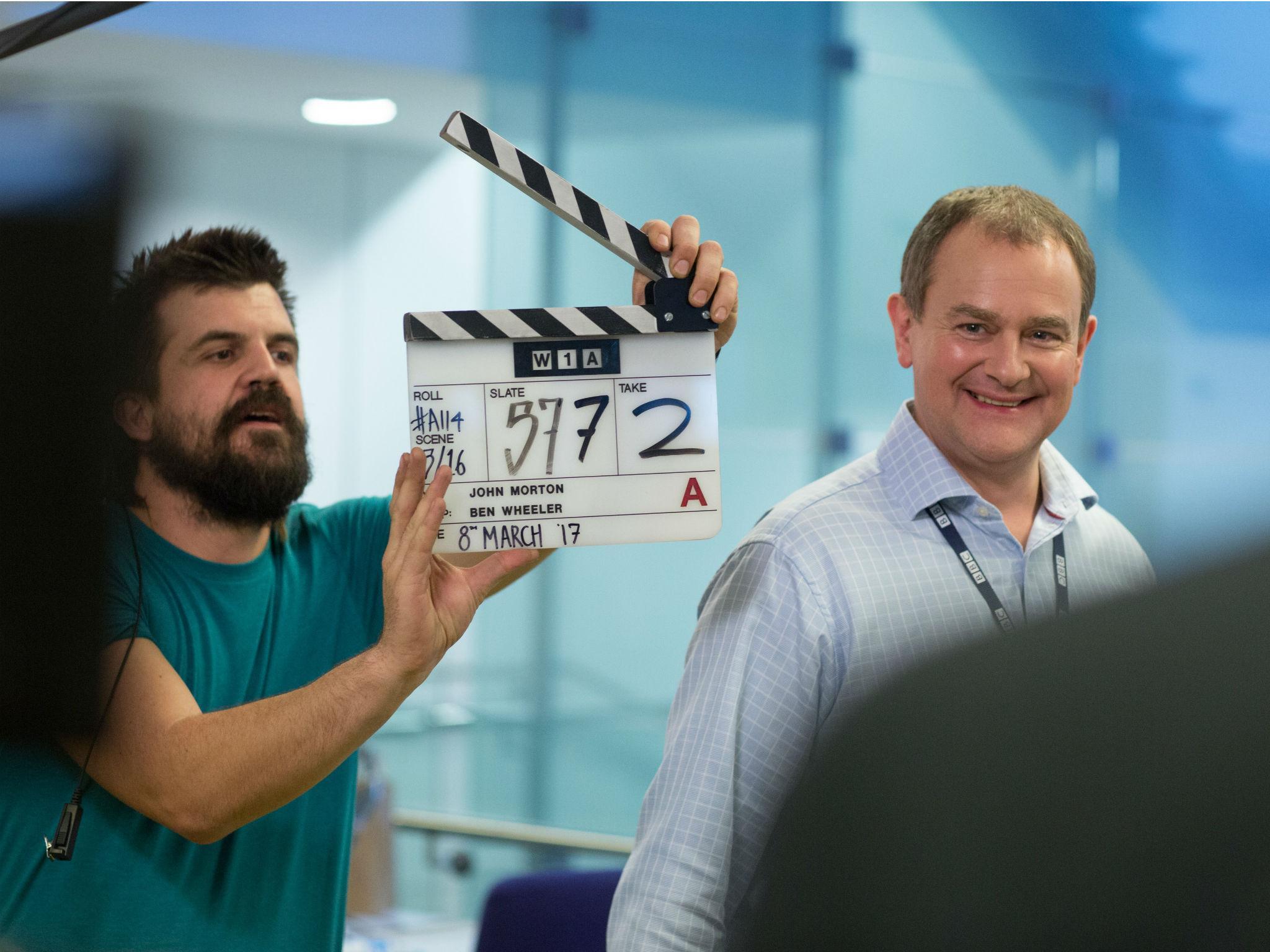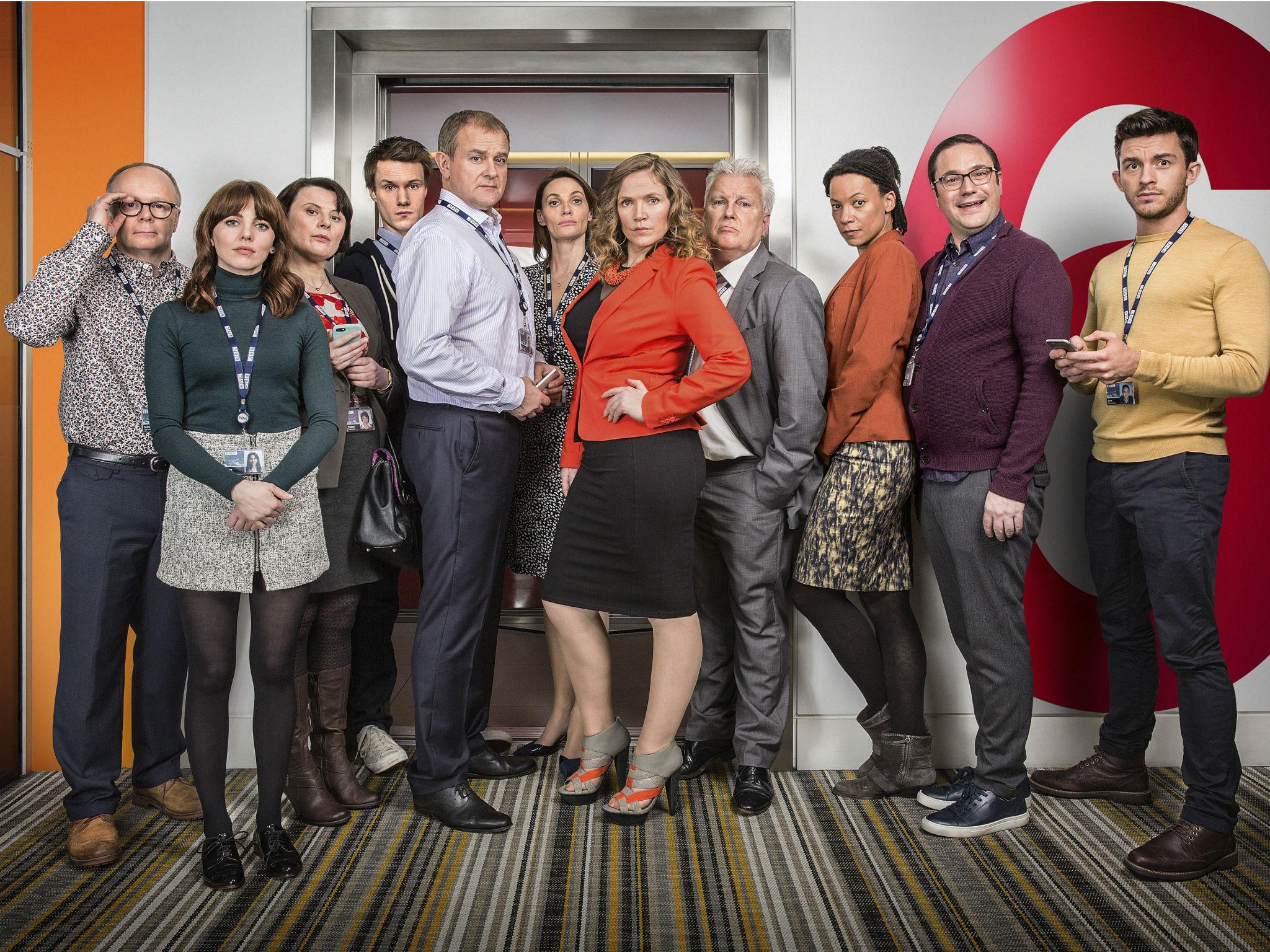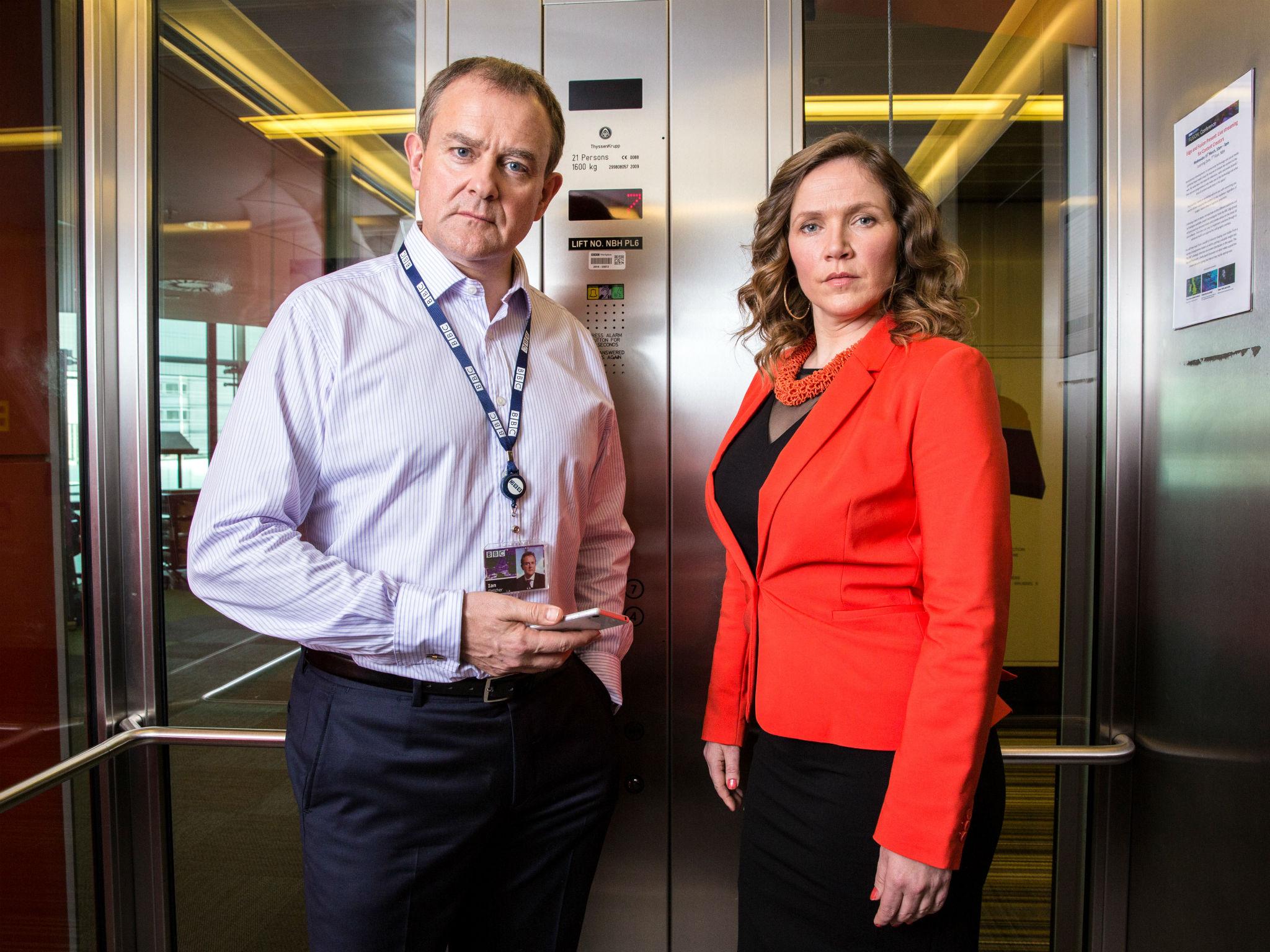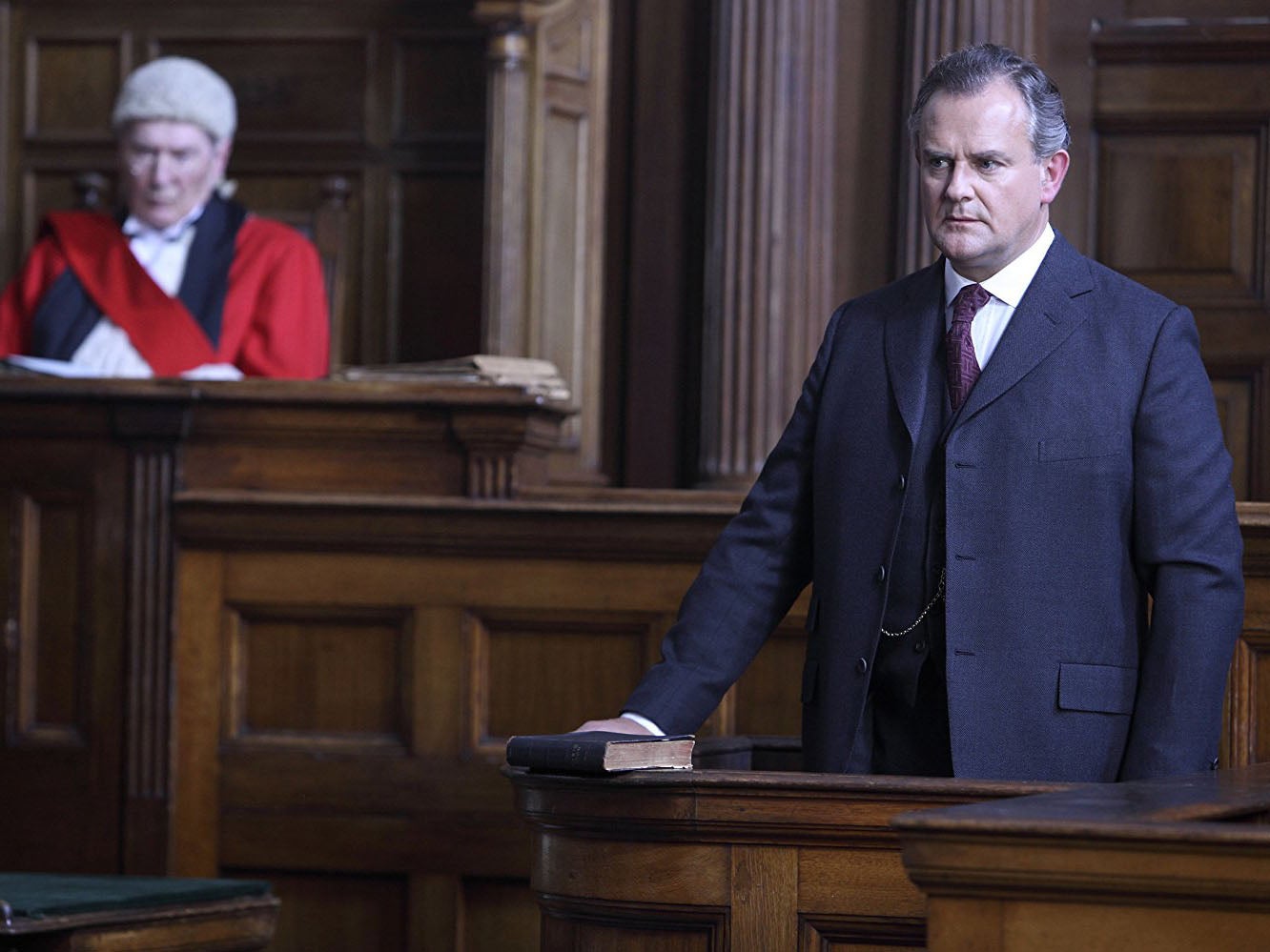W1A: Hugh Bonneville on BBC sitcom, Downton Abbey movie and selfies
We spoke to cast members and the writer of the third series of the Bafta award-winning TV show which many BBC executives may find uncomfortably close to reality

Your support helps us to tell the story
From reproductive rights to climate change to Big Tech, The Independent is on the ground when the story is developing. Whether it's investigating the financials of Elon Musk's pro-Trump PAC or producing our latest documentary, 'The A Word', which shines a light on the American women fighting for reproductive rights, we know how important it is to parse out the facts from the messaging.
At such a critical moment in US history, we need reporters on the ground. Your donation allows us to keep sending journalists to speak to both sides of the story.
The Independent is trusted by Americans across the entire political spectrum. And unlike many other quality news outlets, we choose not to lock Americans out of our reporting and analysis with paywalls. We believe quality journalism should be available to everyone, paid for by those who can afford it.
Your support makes all the difference.In a priceless scene from the new series of W1A, the hilariously self-deluded PR guru Siobhan Sharpe (played with commendable humourlessness by Jessica “Bridget Jones’ Baby” Hynes) is outlining her latest ludicrous plan for the BBC: “If you want to be the best duck hunter, you go where the ducks are – and you take your hoisin sauce with you.”
This sentence encapsulates the appeal of John Morton’s Bafta award-winning series, which returns for an eagerly anticipated third series on 18 September.
A razor-sharp comedy about a gaggle of hopeless managers trying in vain to run the BBC, W1A also works on a more universal level. It nails the absurdity of the entire executive world where everyone is so busy covering their own back, they fail to get anything useful done at all. The show is a serendipitous meeting of outstanding writing, acting and directing.
The venue for my interview with the cast of W1A could not be more appropriate: the BBC Radio Theatre at New Broadcasting House in central London. In an eerie example of reality echoing fiction, the show’s star, Hugh Bonneville, and I are initially locked out of the theatre.

Once the door is finally unlocked and we are ushered into the theatre, I ask the actor why W1A appeals far beyond the narrow realm of the London media. “I think it’s very simple,” says Bonneville, who plays Ian Fletcher, the BBC’s Head of Values, in the show.
“If you sat on a church hall committee or a FTSE 100 board or even around the dinner table at home, the dynamics of those meetings are recognisable. I think the character tropes in W1A are very recognisable, and John skewers them with brilliance.”
In the first episode of the new series, Ian and his team tie themselves in politically correct knots over what to do about a cross-dressing ex-footballer who has accused the BBC of discrimination for not employing him as a pundit. The executives’ solution is to give him an audition on Match of the Day. What could possibly go wrong?
Morton is known for the prescience of his comedy. Famously, in the opening episode of Twenty Twelve, his series that preceded W1A and focused on the cock-ups perpetrated by the team organising the London Games, the Olympic countdown clock went into meltdown. The episode was broadcast the day before exactly the same thing happened in real life.
The writer-director’s antennae are similarly acute in W1A. Bonneville, whose alter ego Ian was the Head of the Olympic Deliverance Commission in the previous show, recalls that, “When we did Twenty Twelve, Seb Coe said, ‘Do you have microphones in our meetings?’”

Watch Apple TV+ free for 7 days
New subscribers only. £8.99/mo. after free trial. Plan auto-renews until cancelled

Watch Apple TV+ free for 7 days
New subscribers only. £8.99/mo. after free trial. Plan auto-renews until cancelled

In the same way, many BBC executives may find W1A uncomfortably close to reality. But for all that, those real-life role models appear to relish the reflected glory their fictional counterparts bring them.
Bonneville, who has also starred in the global hit drama Downton Abbey, recollects that when W1A was filming in New Broadcasting House, “There have never been more selfies taken than in the BBC building, which you would think would be too cool for school.
“But when we were filming here [the BBC’s highly respected security correspondent] Frank Gardner was buzzing around taking selfies with us in the background. The usual thing is the number of BBC executives who come up to us and say, ‘You don’t know the half of it!’”
David Westhead, who plays Neil Reid, the no-nonsense head of news, chips in with another anecdote underlining the fact that real BBC executives are secretly very flattered by the attention that the series generates. “I had a strange phone call when I was on a train after the first series. Somebody phoned and said, ‘Hello, it’s so and so from the BBC, and we’ve just got a senior news executive who’s leaving after 25 years’ service. Would you come and give the farewell speech?’
“I said, ‘You do know I’m not the real head of news and current affairs?’ And they replied, ‘Yes, but he’s a great fan of the show.’ ‘Of course, I will. ‘Great, we’ll do it on film’. So I went into the newsroom, and they told me, ‘Say whatever you like’.”

Westhead, who has also appeared in The Iron Lady and Mrs Brown, continues that, “I had no idea who this person was and no idea what to say. So I simply said, ‘You’ve been useless for the past 25 years. Clear your desk now. You’re a disgrace!’ He liked it – so at least one person did! Anyway, that’s what the senior executives at the BBC might think about our show.”
W1A also conjures up a world where the more the characters speak, the less they say. They use language to obfuscate rather than clarify. So that’s all good.
Morton, who also wrote and directed the award-winning People Like Us, reflects that, “It’s a feature of corporate life. I think people in the public eye are very articulate and part of that is about trying to hide what you’re thinking. Your worst nightmare is being caught out in some way.
“You hear this on the Today programme all the time – people being terrified of being caught out about what they actually think. And so they’re coached by media trainers and given the equipment to stop that happening. Then along comes a Trump or a Farage, and people are amazed – ‘Oh my God, he just says what he thinks!’”
Morton goes on to make an announcement that will disappoint W1A’s legions of fans: the third series will definitely be the last. He jokes that, “Spoiler alert: there’s no plane crash – they’re all alive at the end.”
He proceeds to explain why he thinks the time is right to bring the curtain down on W1A. “It’s difficult to find storylines that are funny enough, feel true enough, but are in fact fictional. This is a completely fictional world with completely fictional characters, but very closely tied to a real world about which other people know stuff. So you have to reject a lot of story ideas because they’re funny but not believable, and others that are true but not funny enough.”
It’s true that our best loved sitcoms – think Fawlty Towers or The Office – knew when to stop. So is Morton keen to follow in their footsteps and go out on a high? “That would be nice. I’d much rather be on that side of the equation than go one series too far.”
What does the future hold for the W1A cast, then? Bonneville, who has taken leading roles in such popular films as Paddington, Iris, The Monuments Men and Notting Hill, remains hopeful of making a Downton Abbey movie. “I’ve yet to see a shooting script. But we’re all still friends, and I look back on Downton with enormous affection. I do think there’s a lot of good will towards the notion of doing a movie, and it would be nice to think we could give it one last hurrah.”
The most difficult task, however, “would be herding all us cast members together again, because we’re now all in different parts of the world. It could be a logistical nightmare. But never say never.”
Before we part, I cheekily ask Bonneville to take on the character of Ian Fletcher one last time in order to bid farewell to our readers. Clearing his throat in a suitably Head of Values manner, the actor miraculously morphs into character before my very eyes and declares: “All I can say is that on behalf of all of us in senior and indeed middle management here at the BB and sometimes C, it’s been a great privilege, and if problems are simply solutions waiting to happen, we have an enormous amount of solution opportunities at the BBC, and we address them as well as we can.
“So that’s all good.”
‘W1A’ begins on 18 September at 10pm on BBC2
Join our commenting forum
Join thought-provoking conversations, follow other Independent readers and see their replies
Comments